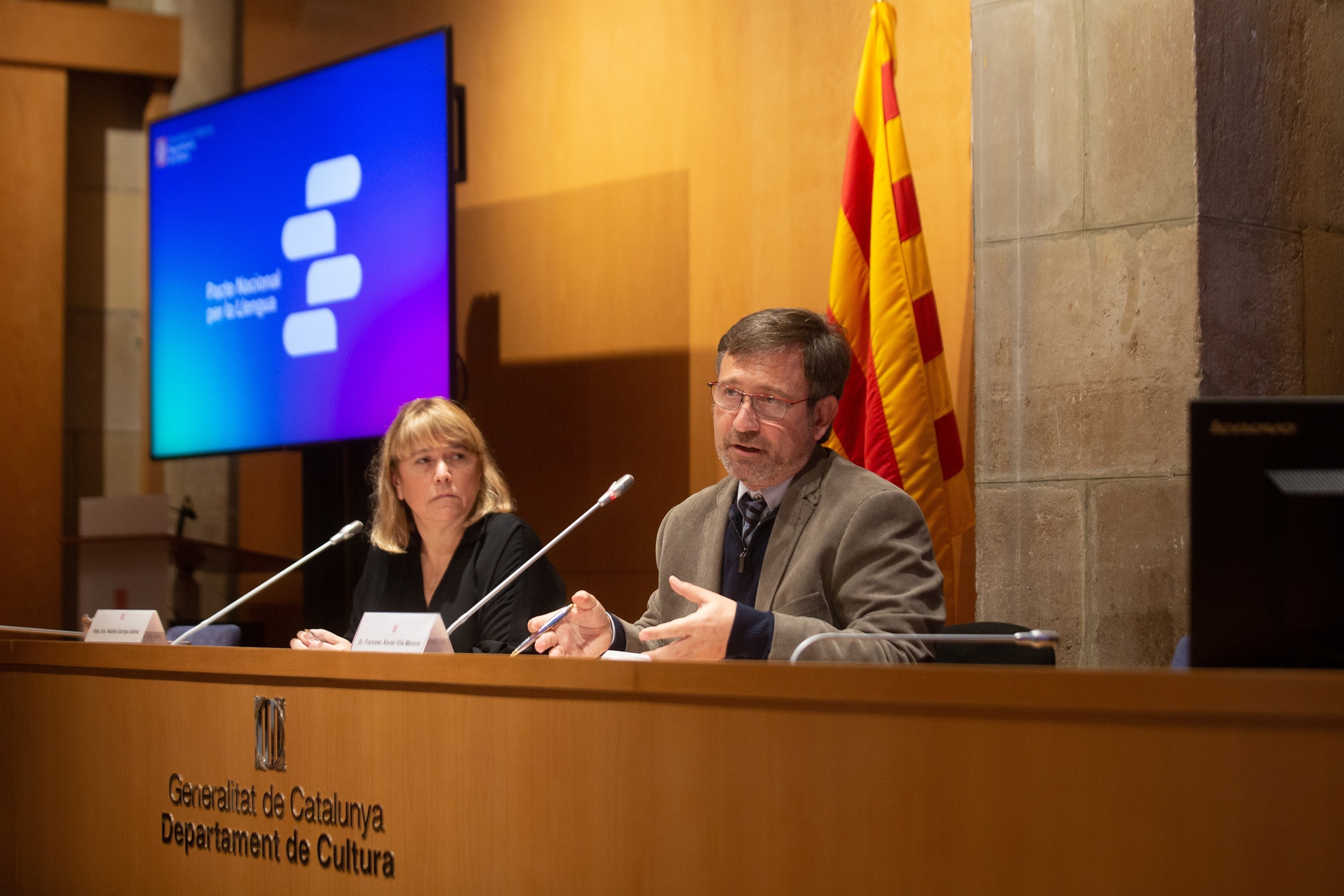The Catalan minister of culture, Natàlia Garriga, invited "everyone" to join the Pacte Nacional per la Llengua (National Pact for the Catalan Language), the objectives and program of which were presented on Wednesday. The only premises, she said, are to "recognize" the unity of the language, the "complex and delicate" situation it is going through, and to share the need to act. Garriga announced that the head of the opposition, Salvador Illa, confirmed the PSC will be part of it, along with the parties of the coalition government, the CUP and the commons.
According to the minister, several indicators show that the linguistic model presents "symptoms of exhaustion" and she called for "updating and modernizing" the tools that have made it advance until now. The first meeting of the Pacte Nacional per la Llengua will be in February, when the Academic Report on the situation of Catalan, prepared by experts, is ready.
The meeting with political groups and organizations will be the first step in a participatory process open to all citizens that will culminate in July, with a synthesis of the contributions collected. The forecast is that a framework agreement will be reached in autumn, and it will be presented and signed in December. All this will serve as a basis for the future multiannual language policy plan.
Political and social consensus
Garriga, accompanied by the Secretary of Linguistic Policy, Francesc Xavier Vila, explained that the main objective of the plan is to reach a social and political consensus on the situation of Catalan and "reach a consensus on the necessary policies". Vila added that it is not so much a matter of setting percentage objectives as of establishing "criteria and tools" for intervention for the future of the language.
According to Garriga, we are immersed in a "crucial" moment for the future of Catalan, a language that, she believes, is "far from the minimum level of knowledge" and desirable social use. She also pointed out that the linguistic agreements of "40 years ago need to be updated and modernized": "society has changed, it is diverse and multilingual; we need new tools and a realistic analysis of the situation of Catalan".
Constructive debate
The minister bet on "renewing the consensuses that turned Catalan into a meeting point and a tool of cohesion", to guarantee its survival. The future of the Catalan language, said Garriga, calls for a "constructive debate so that the strategy is shared as much as possible".
It was at this point that the minister said that she counts on the participation of "everyone", and referred to the commitment of "over 80%" of the Catalan Parliament to move forward with the pact. "We have an outstretched hand and are willing to include everyone," she said about the parties that have not yet announced if they will join. This does not include the PSC, which already announced its participation as confirmed personally by its leader, Salvador Illa. Garriga recalled, however, that in order to take part in the pact it is necessary to recognize the unity of the language, as well as its "delicate" situation and the need to act to revert it.
Priority areas
For his part, the secretary of Linguistic Policy announced that the priority areas of work on of the pact will be, in this order: public administrations, the educational world and research, social cohesion, culture, audiovisual and media, the digital world and language technologies, the socioeconomic and the labour world, health and welfare services, leisure and sport, the relationship between the Catalan-speaking territories, state and international scope, and quality of the language. The initial budget foreseen for the activities related to the Pact is 345,000 euros.

